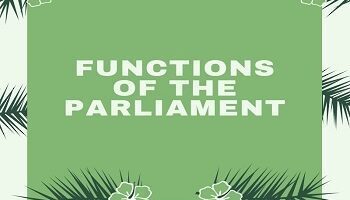Types of Budget:
The following types of Budget can be identified.
(1) Legislative Type Budget- When a budget is prepared by a committee of the legislature at the request of the executive, it is known as a legislative-type budget. In it, the legislature prepares and approves the Budget. The executive accepts such a budget. This type of budget is now rarely used.
(2) Executive Type Budget- In this type, preparation and presentation of the budget is the responsibility of the executive. The executive gets the budget passed from the legislature. This type of budget is the most popular. In the USA, the budget is made by the Bureau of Budget and passed by Congress.
(3) Performance Budget- The modern trend is in favor of a performance budget rather than a programme or classification budget. In the words of Robert H. Herman, “Performance budgeting emphasizes the needs of the government rather than the needs of others. In it, the emphasis shifts from the needs to the accomplishment itself. Actually, performance budgeting takes place only in the municipalities.” Performance budget generally means a system of presentation of public expenditure in terms of functions, programmes, performance units i.e. activities, projects, etc., reflecting primarily the governmental output, and its cost. It is through budgetary allocations that the programs are sought to be implemented and controlled. Its primary concern is the objectives or goals that are to be served by the government.
Performance budgeting places emphasis on a precise definition of the work to be performed, and a correct estimate of the cost of such a work. In it, each function is divided into programmes, the programmes into activities, and the activities into project works. Each function represents a broad grouping of operations that are directed towards accomplishing a major purpose of the government e.g., health, education, agriculture, etc. The programmes refer to broad categories within a function that identify the products of major organizations. The activities are unlimited divisions of actions that are geared towards the attainment of the goals of an operating programme or sub-programme. It involves processes for which an intermediate or a low-level organizational unit is given the responsibility. A project refers to a series of work as an investment programme or sub-programme for the formation of capital goods. It is carried out by a production unit capable of functioning independently.
Performance budgeting is recommended by experts because of the following objectives that it serves:
- Correlation of physical and financial aspects of every performance or activity.
- Improvement of budget formulation, review, and decision-making at all levels of management in the government machinery.
- Facilitating better appreciation and review by the legislature.
- Securing of more effective performance audit.
- Measurement of progress towards long-term objectives as envisaged in the plan.
- Bringing of annual budgets and development plans close together through a common language.
(4) Single Budget- Generally, the government has a single budget for all its administrative departments. A single budget is a wholesome synthetic budget that accounts for the income and expenditure of all government departments as well as their policies, projects, and programmes.
(5) Plural Budget- In this type of budget, there are prepared and presented two or three or even more budgets. Each budget covers one or more groups of departments. In India, two budgets are prepared and passed- The Railway Budget since 1921 covers only the Railways while the General Budget covers all other departments of the government.
(6) Balanced, Surplus, or Deficit Budget– A budget may be balanced, surplus, or deficit. A balanced budget is one in which the revenues are equal to the expenditure. A surplus budget is one in which the revenue exceeds the estimated expenditure. A deficit budget is one in which expenditure exceeds the estimated revenue. A deficit budget is presented mostly in countries with developing economies. A balanced budget is considered ideal. Generally, a small-surplus budget, to be on the safe side, is preferred.
(7) Zero Budgeting or Zero Base Budgeting (ZBB)- Zero-base budgeting is an emerging concept that also advocates rational budgeting. In this respect, it is quite close to performance budgeting. It involves a critical review of every scheme before a budgetary provision is made in its favor. In the traditional process of budgeting, funds are allotted on an incremental basis without taking into account the actual performance of a scheme. Zero-based budgeting requires a mass of data regarding various aspects of the schemes for which funds have to be allocated. The department or the agency has to give all relevant data and other facts which can justify the allocation of funds in the budget. Funds are made available only when the schemes have been tested and justified. ZBB involves a comprehensive and precise evaluation of the programmes before allocating them additional/annual funds. In case a programme is found not to be heading towards the prescribed and desired goals, it can be redirected or even totally scrapped. In its place, a new programme is initiated. However, in most of cases, the evaluation of various programmes leads to the incorporation of necessary modifications and improvements.









Comments (No)